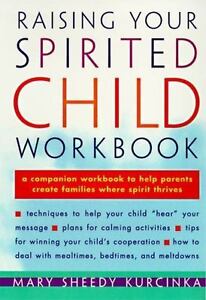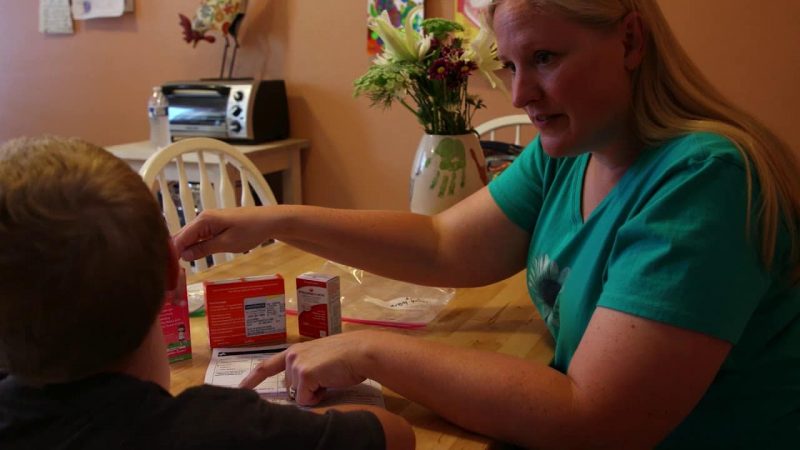Have you ever even heard of the term before? I hadn’t until about six months ago. I have two highly sensitive children–one I’ve known about for a long time, and the other snuck up on me. You can go here to take a quiz to see if you might have a highly sensitive child in your life, and here to see if you might be highly sensitive.

In reading these two books, I find the terms ‘spirited’ and ‘highly sensitive’ interchangeable, but for simplicity’s sake, we’ll use highly sensitive child or HSC.
There can be a wide variance in HSCS–my two are the oldest and youngest, and have similar HSC characteristics, but overall very different personalities. There is a five and a half year age difference between them, and my youngest was(is?) a preemie, so he’s also a little like a wild card compared to his full term brothers.
The biggest HSC struggles in our house are:
- resistance to change–this is our biggest issue. Any and all change from the schedule or plan can bring on meltdowns. We’re constantly working on flexibility, and talking about how plans change, and we have to adjust and change too.
- attune to others’ moods–the HSCS feed off of even the slightest stress or negativity of anyone in the house, especially the parents.
- overstimulation–right after school is prime time for HSC struggles. We have implemented an immediate snack/quiet time as soon as everyone gets off the bus, which helps.
- punishment–even the mildest reprimand can bring on a wide variety of negative responses.
- clothing–I’ve cut tags out of countless shirts (thank goodness so many now are tagless!), and it frustrates me to no end knowing that perfectly good clothing sits in the dresser unworn, because of some (seemingly) minute issue. (Like socks with uncomfortable seams). I’ve come to terms with letting my HSC wear or not wear what they want (within reason). There are enough boys in my house that all the clothing will get worn eventually.
Contrary to what connotations the words highly sensitive bring to mind, my HSCS aren’t shrinking violets, particularly the baby. Being the youngest of a houseful of boys has taught him how to take care of himself very well.
Thankfully we haven’t had any behavior issues at preschool or in the church nursery, but if a playmate comes and snatches a toy out of his hands, he doesn’t burst into tears, he gets it back. (Yes, we talk about sharing a lot). He wrestles, argues and negotiates with multiple boys up to five and a half years older than him every single day of his life. He’s not shy.
Food issues are often a common factor of HSCs, but at our house, the HSCS are the best eaters, and my easy-going, laid-back kid is the picky one. Go figure.
I’m a highly sensitive person also, and as much as I would like to say that this helps me relate to the challenges my HSC brings to the table, the opposite is actually true. I find it difficult to deal with some of the HSC issues in my children, maybe because I deal with the same issue on another scale in my own life.
And my easy-going, laid-back kid? He’s also in the middle, and I’m terrified of him being the stereotypical left-out middle child.
Parenting HSCS can be exhausting and frustrating. It’s also joyous and amazing. Learning how to cope with HSC issues can tilt the scale towards joyous and amazing more of the time. These two books have been invaluable to my house in smoothing the way for all of us to deal with each other better.
I try and read anything I can get my hands on about highly sensitive children, and I encourage other parents of HSCS to do the same. Since there is such a variance in HSCS, the information in one book may pertain to your family more than other HSC books. For example, both Aron and Kurcinka’s books are well written, informative, and helpful. But Kurcinka’s could have been written just for my sons–it has literally been life-changing for our family.
Chances are there is a highly sensitive person in your family or in your life. Learning about this trait, and the positive and negative issues that go along with it can help you get along with them.
10 Secrets for Parenting a Highly Sensitive Child
Help them deal with their emotions
HSPs have greater and more complicated emotions–they may respond with, “I don’t know”, when asked what they’re feeling. It’s not that they know exactly what they’re feeling, and they just don’t want to tell you because they’re embarrassed. They really don’t know.
They will likely need some time to process internally before they’re ready to give that feeling a name. This can be very overwhelming for young children, so stay calm, and sit down with them. Give them a few minutes of quiet, and then calmly ask questions that will help them decipher their inner turmoil.
Try to keep emotion out of discipline-related conversations
HSPs tend to take things personally, and discipline can be difficult for child HSPs. Keeping your voice soft and neutral, and peacefully talking about the behavior in question is key for disciplining an HSP child.
Let them pick out their own clothes
my HSP wants to live in track pants and basketball shorts. While a lot of boys prefer these sporty garments, (which doesn’t necessarily make them a HSP) I decided long ago that battling my child over blue jeans was a waste of time and energy. It’s just not worth it.
HSPs feel everything more than the average person, so an itchy tag or sock seam that bothers them will be at the forefront of their mind all day. They can’t just forget about it, they feel it all. day. long. When buying clothes for kids, always save your receipt, and don’t remove any tags before they try clothes on.
I like to buy everything on sale, especially kid clothes that will be soon outgrown. It drove me and my wallet nuts that my HSP son just wouldn’t wear things I had found on sale for him. I get it now, and I know that it will bother him all day long to be physically uncomfortable, so it’s just easier to find something he will wear the first time around.
I’m fortunate too because he has younger, laid-back brothers to pass down items he hardly wears.
Be very selective with movies (and think outside the box)
We learned the hard way that 3D movies don’t work for our HSP. Clearly, my boys are too young for any kind of violence, but even non-violent action and emotionally intense scenes can be too much. I know from personal experience that movies on the big screen can be very overwhelming. HSPs feel all of the emotions more than most people.
Seeing a movie at home can be a much more enjoyable experience for an HSP. Kid HSPs may need to hit pause and take a small break from an intense scene. (As an adult HSP, I NEVER watch horror or super-violent movies. Or anything by Nicholas Sparks).
Don’t overemphasize tragedies
HSPs think about things, ALL the time. Our brains keep ticking non-stop, and tragedies can loop over and over through our minds, despite our best efforts to turn it ‘off’. I don’t believe in sticking our heads in the sand, but we also don’t have news on mindlessly at our house.
Your HSP child may tend to fly solo rather than thriving in a group, and that’s okay
Learn how to channel their strengths when choosing activities for them. For example, they may like swimming or golf, as these are a little more individual sports. My son loves baseball, which is a team sport, but it’s non-contact, and each player has their own individual job to fulfill. While he likes to watch football, he’s never shown much interest in playing it, although many of his friends do. I think these choices are because of his HSPness.
Loud, crowded environments are more overwhelming for HSPs
My HSP has regularly attended our local amusement park. However, he is very particular about what activities he will do there. Other HSPs may not enjoy a setting such as an amusement park at all, because of the noise and crowds of people.
This doesn’t mean that your HSP will become a hermit and never leave the house. But understanding what environments and activities are naturally stressful for them will help them learn how to deal with those situations.
Help them learn to make decisions
Decisions are difficult for any HSP to make. They want to carefully consider ALL the possibilities so that they can make the best decision possible. They may think through a few scenarios and worry about possible outcomes while in the decision-making process. With a child, give them 2 or 3 options to chose from, not unlimited options. This teaches them confidence in their own decision-making skills.
I know it’s not always possible, but try and give them extra time to make their decision. My HSP once asked us if he could have 24 hours to make all decisions in his life. He was about 8 years old at the time and very earnest in this request. Obviously, we couldn’t grant his wish, but when at all possible, we do try and give him as much time as possible to make a decision.
Don’t try and scare them out of their behavior
I’ve been a jumpy person forever–I startle easily. Different well-intentioned people in my life have gone out of their way to scare me, to ‘toughen me up’, so that I’ll get over it. (My boys think this is the most hilarious pass time ever). Please don’t try this. HSP are hardwired to be more sensitive. If they’re jumpier and more easily startled, that’s just the way they are, and you need to accept it, and not try to change them.
Teach them the importance of their physical health
HSP kids are more prone to picky eating, anxiety and sleep issues than more laid back kids. The more they take care of their physical health, the more their mental health benefits. I know this may seem like an obvious statement because it’s also true for everyone, but even more so for HSP kids.
They may require more sleep than average. I have friends and loved ones who work night shifts in law enforcement and in hospitals. I would never be able to function in a job like that, even if the job was otherwise well suited for me.
Picky eating is also often an issue for HSP kids. I’ve discussed picky eating before, and my best in-a-nutshell advice is to try and help your child learn to eat as many whole foods as possible, with as much variety as possible. If they struggle, gently model good eating habits and encourage them to try new things, but don’t fight them over it.
Caffeine or other medicines may affect them much more than normal. Chemicals may also affect them in different ways–medicines that usually cause drowsiness often keep me awake.
Highly sensitive may seem like just another label in a society where almost any behavior can be justified and explained away. In my family, understanding highly sensitive tendencies has freed us so much and has enabled us to more joy as a family.
Do you have any friends or family that are highly sensitive? Let us know your secrets for helping them thrive, in the comments!



